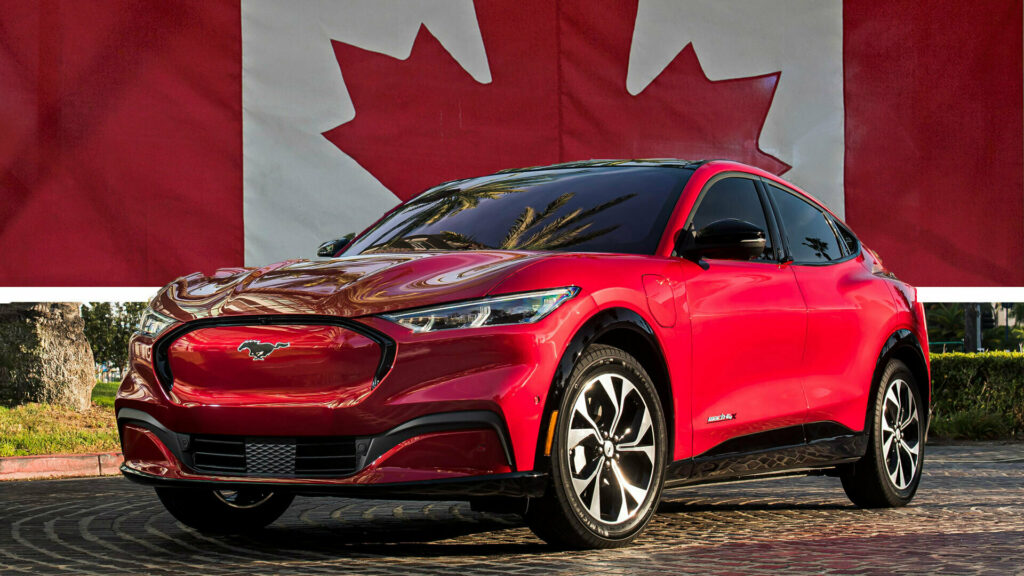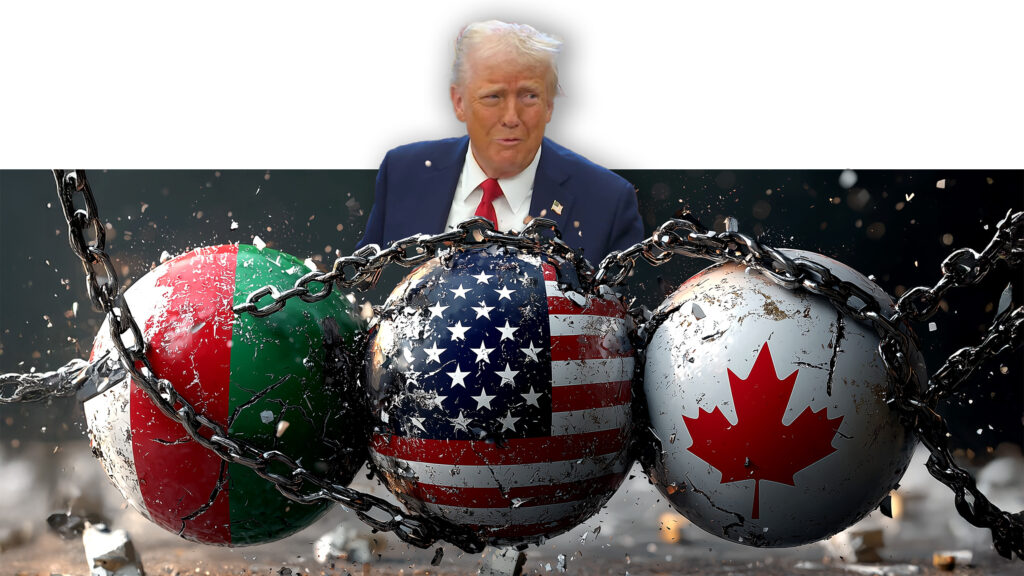- Mexico has agreed to deploy 10,000 soldiers to the border to stop the flow of drugs and migrants.
- Canada will also look to strengthen its border with the US and crack down on organized crime.
- Negotiations will continue over the coming 30 days in an effort to avoid a full-blown trade war.
Both Mexico and Canada have been granted 30-day reprieves from sweeping 25% tariffs announced by US President Donald Trump, just hours before the tariffs were due to take effect. Mexico was the first to catch a break after its President agreed to step up security at the Southern Border.
Given how many cars are built in Mexico and then imported into the United States, any postponement is welcome news for both the auto industry and consumers who would otherwise be footing the bill.
While writing on Truth Social on Monday, Trump revealed he had a “very friendly conversation” with Mexican President Claudia Sheinbaum shortly before the tariffs were set to be introduced. According to Trump, Sheinbaum “agreed to immediately supply 10,000 Mexican Soldiers on the Border separating Mexico and the United States.” He added that soldiers “will be specifically designated to stop the flow of fentanyl, and illegal migrants into our Country.”
Read: Trump’s Tariffs Could Cost US Auto Industry $33 Billion
While this agreement has temporarily paused the tariffs, negotiations are still ongoing. Secretary of State Marco Rubio, Treasury Secretary Scott Bessent, and Commerce Secretary Howard Lutnick are continuing discussions with their Mexican counterparts to determine whether a more permanent resolution can be reached.
While there’s no guarantee Mexico will be able to avoid tariffs altogether, this is an important step in easing tensions between the two countries. If the tariffs were to be implemented, it’s likely that retailers would have to pass on price hikes to consumers. This could also include the auto industry. Each year, Mexico sends more than 2.3 million vehicles to the United States, and several other carmakers build cars south of the border and sell them in the US.
Some of the most popular vehicles on U.S. roads are built in Mexico. Automakers with production facilities there include GM, Ford, Honda, Toyota, Nissan, BMW, and Volkswagen. That means models like the Honda HR-V, Nissan Sentra, Chevrolet Blazer, Ford Maverick, and BMW 3-Series Sedan could all see price hikes if tariffs eventually go through.

Canada’s Reprieve
Soon after Trump confirmed the delay in enacting tariffs against Mexico, Canadian Prime Minister Justin Trudeau revealed he “had a good call” with Trump and agreed to delay tariffs. He said the country will reinforce its border with “new choppers, technology and personnel,” looking to stop the flow of fentanyl.
He also mentioned plans to appoint a so-called “Fentanyl Czar,” classify cartels as terrorist organizations, and establish a joint strike force with the U.S. to target organized crime, fentanyl distribution, and money laundering.
It doesn’t appear as though Canada has made any new commitments to protecting its border with the US. As CNBC notes, all the steps noted by Trudeau were already part of Canada’s Border Plan, published about six weeks ago.
More: Canada Hits Back With 25% Tariffs On U.S. Cars, EVs, And More
Meanwhile, Canada isn’t sitting idle. In response to Trump’s tariff threats, the country has rolled out a two-stage counter-tariff package aimed at a broad range of U.S. goods—including up to 25% on every American-made vehicle. If these measures go into effect, they could deal a serious blow to automakers and further ratchet up trade tensions between the two countries.
I just had a good call with President Trump. Canada is implementing our $1.3 billion border plan — reinforcing the border with new choppers, technology and personnel, enhanced coordination with our American partners, and increased resources to stop the flow of fentanyl. Nearly…
— Justin Trudeau (@JustinTrudeau) February 3, 2025



